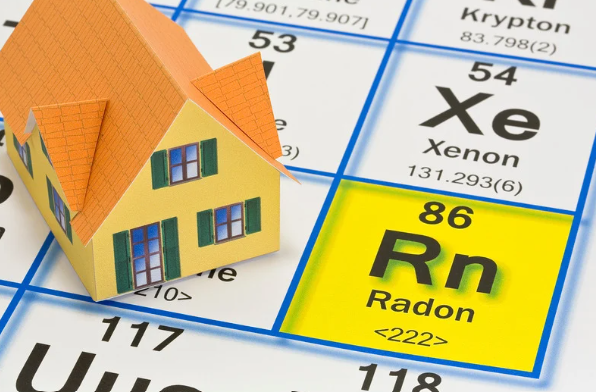January is Kansas Radon Action Month
 The second leading cause of lung cancer might be lurking in your home.
The second leading cause of lung cancer might be lurking in your home.
Lung cancer is usually associated with smoking cigarettes and other tobacco products, but the second leading cause of the disease is something that you will never see.
Radon is a naturally occurring radioactive gas from the soil and become a health hazard when concentrated inside a home. The health concern arises from chronic long-term exposure to elevated indoor radon levels, which increases lung cancer risk.
More than one in four homes across Kansas has high radon. All homes have some radon, but you cannot predict radon levels based on:
- Heating system
- Foundation type
- Age of structure
- Airtightness
- Style of house
- Presence of sumps, cracks, or other features
- If you neighbor does or does not elevated radon levels
Each home is unique and the only way to know if your home has high radon levels is by testing.
Using a short-term test in the winter reflects the home radon concentrations 94% of the time. The kit is opened and left in the lowest livable part of the home for at least two days. Once the test is completed, the kit is packaged in the self-addressed stamped envelope and mailed to the lab for testing, results are usually ready in 7-10 days.
If you do a radon test and if the house tests at or above the EPA’s national recommended action level of four Pico carries of radon per liter of indoor air. Homeowners should talk with a certified radon contractor if high levels are detected. A list of certified radon contractors are available by calling the Kansas Radon Hotline at 800-693-5343. Additional information about radon can be obtained at www.kansasradonprogram.org and at www.epa.gov/radon.
At the K-State Extension office, you can purchase a $15 short-term radon test kit. As part of the kit, you'll receive a charcoal test, a prepay envelope, and lab fee.
For more information, please contact Joy Miller at 913-715-7000 or joy.miller@jocogov.org.
